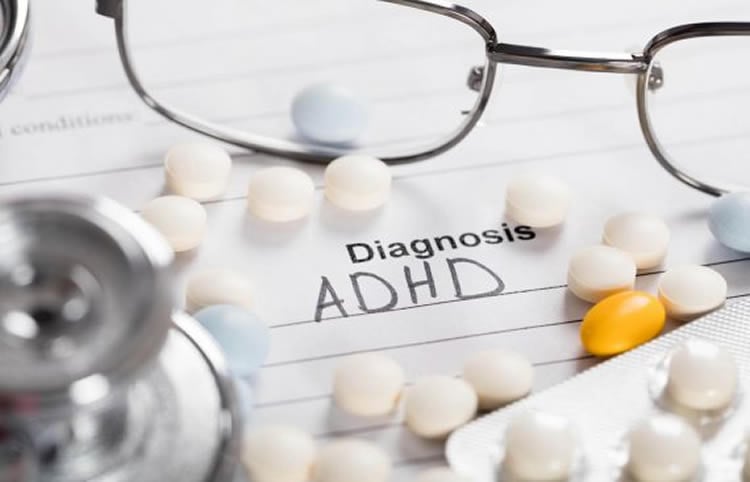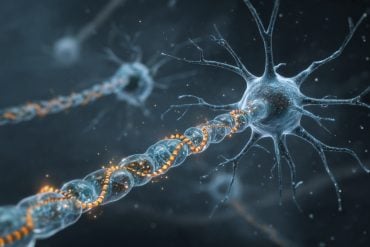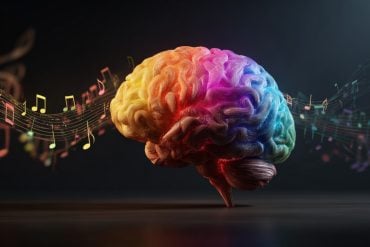Summary: Researchers report up to 80% of people diagnosed with adult onset ADHD likely do not have the condition. For the 20% of adults who may have ADHD, doctors may have missed the condition during childhood, the researchers conclude.
Source: Florida International University.
Adults likely do not develop ADHD, according to new research by FIU clinical psychologist Margaret Sibley.
More than 80 percent of people diagnosed with adult-onset ADHD probably don’t have ADHD at all. Those who actually have the disorder likely had it as children but were undiagnosed.
“The notion of a widespread adult-onset ADHD epidemic falls apart when you have access to detailed patient clinical records and history,” said Sibley, an associate professor of psychiatry & behavioral health at FIU’s Center for Children and Families and Herbert Wertheim College of Medicine.
“We found a number of people who looked like they had adult-onset ADHD, but when we looked closely, adult-onset symptoms were traced back to childhood or were better explained by other problems, like the cognitive effects of heavy marijuana use, psychological trauma, or depressive symptoms that affect concentration,” Sibley said.
Sibley and colleagues evaluated 239 participants every two years, starting at age 10 and ending when the participants were 25. The researchers used parent, teacher, and self-reports of ADHD symptoms, impairment, substance use, and other mental disorders. They looked at the context of the symptoms and the timing.

Sibley said false positive late-onset ADHD cases are common without careful assessment and clinicians should carefully assess impairment, psychiatric history, and substance use before treating potential perceived cases of adult-onset ADHD. Additional explanations for late-onset ADHD-like symptoms could include traumatic brain injury, environmental stressors, medication side effects, or physical illnesses. Sibley says more research needs to be done.
Source: Ayleen Barbel Fattal – Florida International University
Publisher: Content organized by NeuroscienceNews.com.
Image Source: NeuroscienceNews.com image is adapted from the Florida International University news release.
Original Research: Abstract for “Late-Onset ADHD Reconsidered With Comprehensive Repeated Assessments Between Ages 10 and 25” by Margaret H. Sibley, Ph.D., Luis A. Rohde, M.D., James M. Swanson, Ph.D., Lily T. Hechtman, M.D., Brooke S.G. Molina, Ph.D., John T. Mitchell, Ph.D., L. Eugene Arnold, M.D., Arthur Caye, Traci M. Kennedy, Ph.D., Arunima Roy, Ph.D., Annamarie Stehli, M.P.H., for the Multimodal Treatment Study of Children with ADHD (MTA) Cooperative Group in American Journal of Psychiatry. Published online October 20 2017 doi:10.1176/appi.ajp.2017.17030298
[cbtabs][cbtab title=”MLA”]Florida International University “Can Adults Develop ADHD? Probably Not, Researchers Say.” NeuroscienceNews. NeuroscienceNews, 21 October 2017.
<https://neurosciencenews.com/adults-adhd-7784/>.[/cbtab][cbtab title=”APA”]Florida International University (2017, October 21). Can Adults Develop ADHD? Probably Not, Researchers Say. NeuroscienceNews. Retrieved October 21, 2017 from https://neurosciencenews.com/adults-adhd-7784/[/cbtab][cbtab title=”Chicago”]Florida International University “Can Adults Develop ADHD? Probably Not, Researchers Say.” https://neurosciencenews.com/adults-adhd-7784/ (accessed October 21, 2017).[/cbtab][/cbtabs]
Abstract
Late-Onset ADHD Reconsidered With Comprehensive Repeated Assessments Between Ages 10 and 25
Objective:
Adolescents and young adults without childhood attention deficit hyperactivity disorder (ADHD) often present to clinics seeking stimulant medication for late-onset ADHD symptoms. Recent birth-cohort studies support the notion of late-onset ADHD, but these investigations are limited by relying on screening instruments to assess ADHD, not considering alternative causes of symptoms, or failing to obtain complete psychiatric histories. The authors address these limitations by examining psychiatric assessments administered longitudinally to the local normative comparison group of the Multimodal Treatment Study of ADHD.
Method:
Individuals without childhood ADHD (N=239) were administered eight assessments from comparison baseline (mean age=9.89 years) to young adulthood (mean age=24.40 years). Diagnostic procedures utilized parent, teacher, and self-reports of ADHD symptoms, impairment, substance use, and other mental disorders, with consideration of symptom context and timing.
Results:
Approximately 95% of individuals who initially screened positive on symptom checklists were excluded from late-onset ADHD diagnosis. Among individuals with impairing late-onset ADHD symptoms, the most common reason for diagnostic exclusion was symptoms or impairment occurring exclusively in the context of heavy substance use. Most late-onset cases displayed onset in adolescence and an adolescence-limited presentation. There was no evidence for adult-onset ADHD independent of a complex psychiatric history.
Conclusions:
Individuals seeking treatment for late-onset ADHD may be valid cases; however, more commonly, symptoms represent nonimpairing cognitive fluctuations, a comorbid disorder, or the cognitive effects of substance use. False positive late-onset ADHD cases are common without careful assessment. Clinicians should carefully assess impairment, psychiatric history, and substance use before treating potential late-onset cases.
“Late-Onset ADHD Reconsidered With Comprehensive Repeated Assessments Between Ages 10 and 25” by Margaret H. Sibley, Ph.D., Luis A. Rohde, M.D., James M. Swanson, Ph.D., Lily T. Hechtman, M.D., Brooke S.G. Molina, Ph.D., John T. Mitchell, Ph.D., L. Eugene Arnold, M.D., Arthur Caye, Traci M. Kennedy, Ph.D., Arunima Roy, Ph.D., Annamarie Stehli, M.P.H., for the Multimodal Treatment Study of Children with ADHD (MTA) Cooperative Group in American Journal of Psychiatry. Published online October 20 2017 doi:10.1176/appi.ajp.2017.17030298







